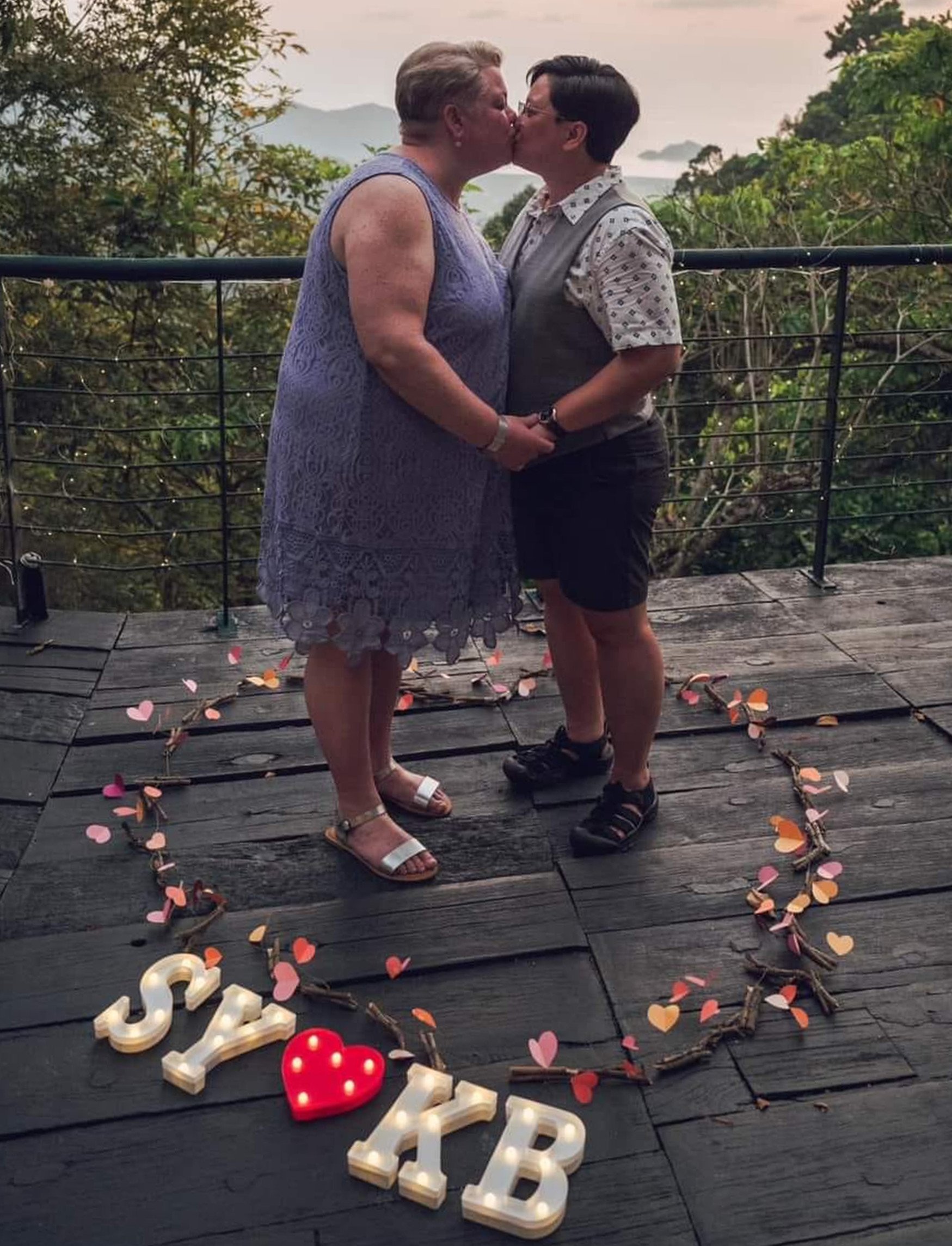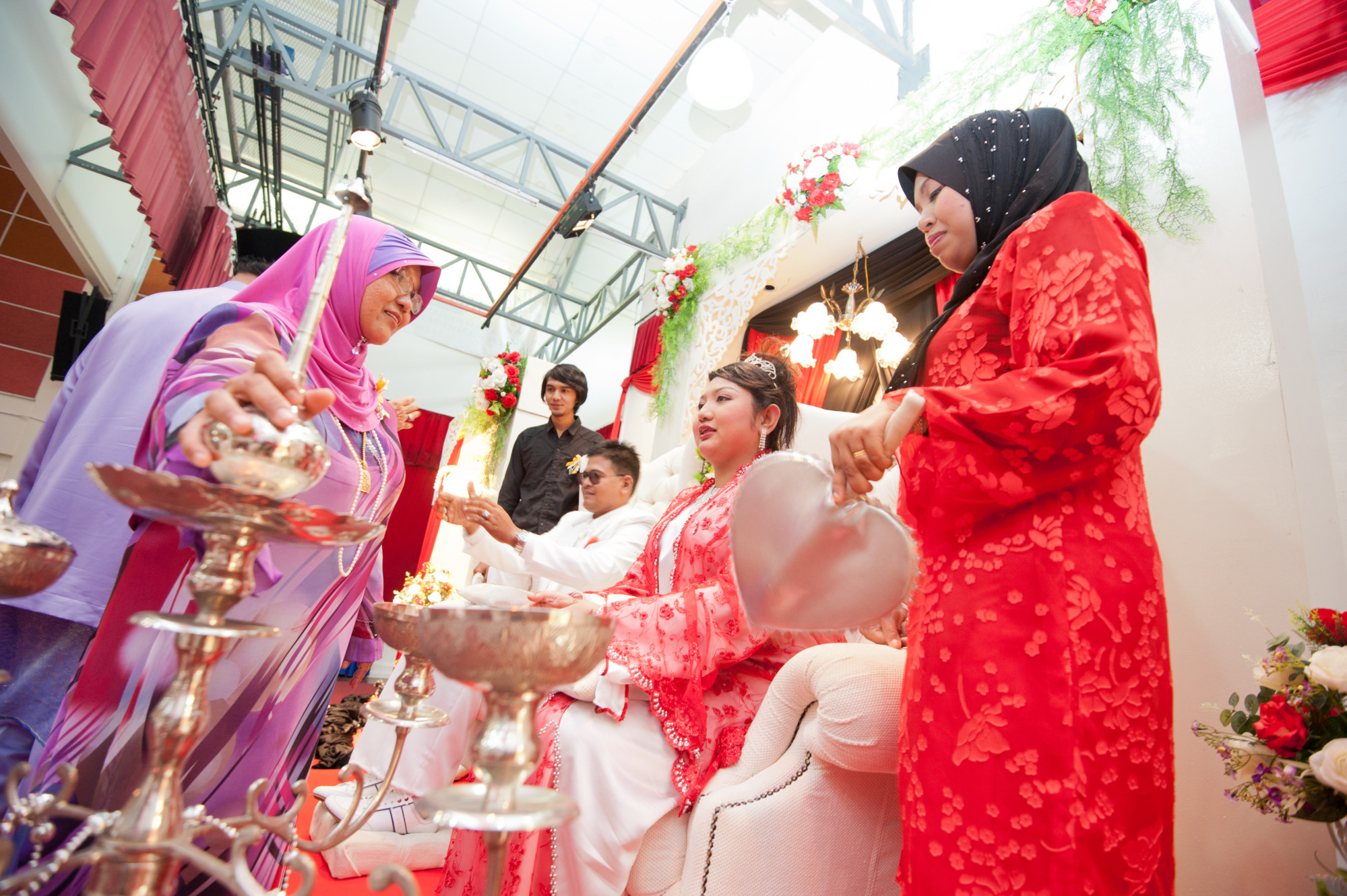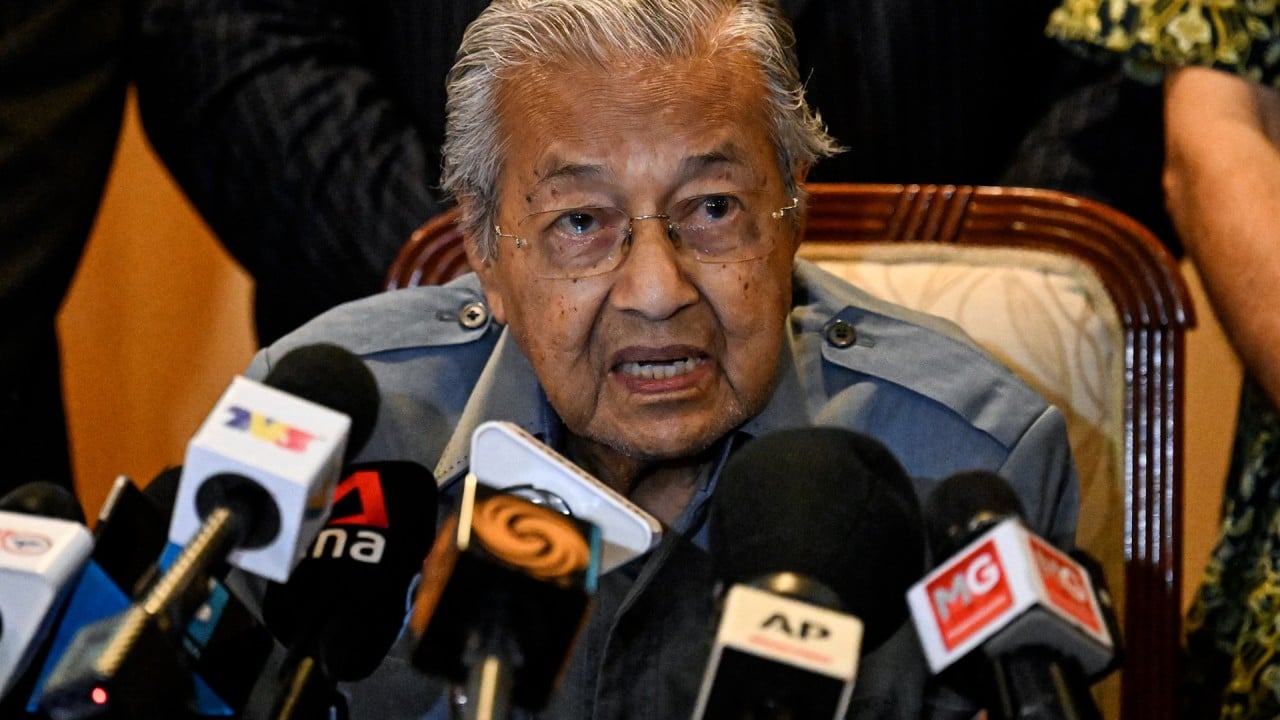
Malaysia’s religious tilt drives mixed-faith couples overseas to find ‘somewhere more accepting’
- Threats by conservatives towards a newly engaged lesbian ex-lawmaker highlights how a resurgent religious lobby is shifting Malaysia away from personal freedoms
- Voters hoped PM Anwar Ibrahim would halt the spread of religious conservatism, yet critics say he continues to pander to politicians close to the Malay-Muslim base
This presents couples with a difficult choice: convert, live incognito, break up, or leave the country to stay together.

“If it indeed happened, actions will be taken under relevant laws,” its chairman Ahmad Zakiyuddin Abdul Rahman said.
In response, the Democratic Action Party women’s wing chief Chong Eng issued a statement saying Yap was “an ordinary person with her own decisions” who left the country some time ago.
“She is someone independent, she made her decision. Don’t link it to politics,” said Chong.
The DAP is competing against the staunchly conservative Perikatan Nasional coalition, which is bolstered by Islamist party PAS and has the support of the largely conservative Malay-Muslim voter pool – about 60 per cent of the electorate.
The episode has highlighted the power of political pressure from a resurgent religious lobby, which experts say is steering the country towards greater conservatism rather than more personal freedoms.
Malaysia best place in Asia to retire, ahead of Vietnam, Indonesia: Nasdaq
And with state elections set for next month, observers have suggested that Anwar’s administration is sliding further to the right as it seeks Malay votes, with Islamic religious authorities seen overreaching into the lives of non-Muslim Malaysians and non-citizens alike.
In a speech in June, Anwar said the role of the country’s Islamic body, known as Jakim, will be expanded “to enhance the country’s dignity and status,” adding the panel is there to nurture “true Islamic values”.

Love in a hopeless place
“But it is not recognised in my home country,” Syafiq told This Week in Asia.
A self-described nerd, he runs a video-content company in Kuala Lumpur while his spouse works in communications.
After six years of courtship, a 20-hour flight across the globe to tie the knot was the last resort for the couple, who would otherwise have had to abandon their dreams of matrimony unless Sally, a devout Christian, renounced her faith for Syafiq’s – something he could not bring himself to push on her.
If a Muslim was to marry someone of a different faith, their partner has to convert to Islam
Marriage is recognised as a religious matter to be governed by sharia for Muslims. The Islamic legal system prohibits same-sex civil unions, let alone interfaith marriages.
The issue was raised again recently by religious affairs minister Na’im Mokhtar in response to a question in the Malaysian parliament.
“If a Muslim was to marry someone of a different faith, their partner has to convert to Islam,” Na’im told the assembly.
Bon Odori festival saga sheds light on how Malaysia governs Islam
His statement is backed up by the country’s laws.
The Islamic Family Law (Federal Territory) Act 1984 states that no man can marry a non-Muslim woman and vice versa, while the earlier Law Reform (Marriage and Divorce) Act 1976 does not apply to Muslims.
Understanding the legal hurdles to gaining recognition for their union, Syafiq and Sally decided not to bother registering their marriage while still living in Malaysia, despite knowing it would lead to problems down the road, particularly when it comes to having children.
“We are worried, but we intend to leave this country eventually for somewhere more accepting,” Syafiq said.

No clean break
In 2015, four people in Sarawak who applied to leave Islam following divorces and the deaths of their spouses were denied after disputes over which of the two legal systems had jurisdiction – and the sharia court refusing to issue them a letter of release from the religion.
Speaking to This Week in Asia, Maria, who is in the same predicament of wanting to exit the legal binds of her faith following a divorce, called the impact of the judicial set-up “a macabre injustice” towards her.
An ethnic Chinese Christian, she converted to Islam to marry her long-time Malay-Muslim partner only to find herself unable to come to terms with being a Muslim, leading to the dissolution of the marriage after just a year.
‘Armed’ Islamist parade in Malaysia deepens fears of growing conservatism
She has since found herself in a conundrum when it comes to dating as any non-Muslim she meets in Malaysia in future will not want to commit to a relationship, knowing that they too have to convert to Islam.
The two competing legal systems could also cause problems after her death. Her body needs to be cleaned and prepared according to Islamic rituals and buried in a Muslim cemetery – despite her actual religious conviction.
Instances of what some have termed “body-snatching” by religious authorities have occurred in the past, leading to racial tension in multicultural Malaysia.
“There needs to be a greater conversation about this. Right now, no one dares to talk about it,” said Maria, who admits that she herself is scared to discuss her experience.
Moderate Muslim advocacy groups such as G25 have for years criticised Malaysia’s stance on freedom of religion, arguing the matter is unconstitutional.
In its 2020 report on the “Administration of Matters Pertaining to Islam in Malaysia”, the group pointed out that the constitution guarantees every person in Malaysia the right to profess, practise and propagate their religion.
“There is no constitutionally permitted ground to prohibit the mere profession of one’s religion,” the report read.
Despite the prevailing status quo, Shafiq said he and his wife hoped to be able to return to Malaysia to retire one day.
“It is still home … I hope things change eventually,” he said.



